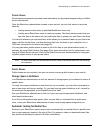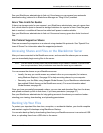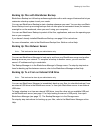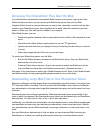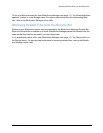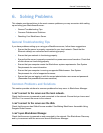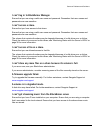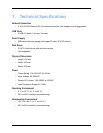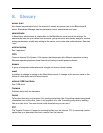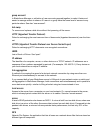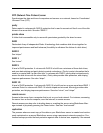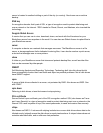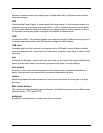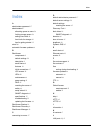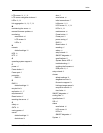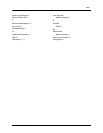
BlackArmor® NAS User Guide 58
group account
In BlackArmor Manager, a collection of user accounts grouped together to make it faster and
easier to manage access to shares. All users in a group have the same level of access to any
particular share. See also “user account”.
hot-swap
To remove and replace a disk drive without first powering off the server.
HTTP (Hypertext Transfer Protocol)
Rules for exchanging the most common form of documents (hypertext documents) over the Inter-
net.
HTTPS (Hypertext Transfer Protocol over Secure Socket Layer)
Rules for exchanging HTTP documents over encrypted connections.
JBOD
Just a Bunch of Drives. See “span”.
IP address
The identifier of a computer, server, or other device on a TCP/IP network. IP addresses are a
sequence of four numbers separated by periods. (For example, 123.456.78.1.) Every device on
your local network has a unique IP address.
link aggregation
A method of increasing the speed of a device’s network connection by using more than one
Ethernet port simultaneously to connect to the network.
If you connect both of your BlackArmor server’s LAN ports to your network router or switch and
set Aggregation in BlackArmor Manager, both connections work simultaneously and in parallel to
move data more quickly—similar to filling a bucket using two hoses instead of one.
local access
Access to the server from a computer on your local network. Or, manual access to the server,
which involves physical contact with the server or its cables. See also “remote access”.
mirror
A level of RAID protection also known as RAID 1. A mirror is built from two disk drives, where one
disk drive is a mirror of the other (the same data is stored on each disk drive). Compared to inde-
pendent disk drives, a mirrored volume provides faster performance, but has only 50% of the
capacity.
NFS
Network File System. An application that lets all users on a network share files that are stored on
different types of computers.



